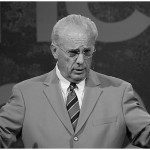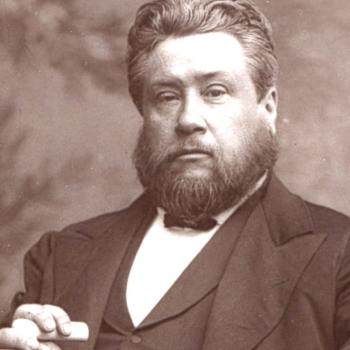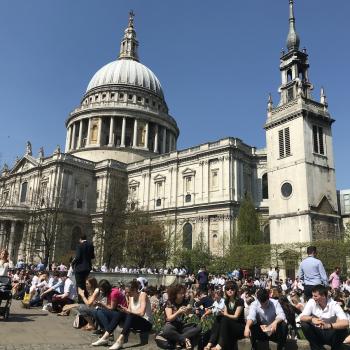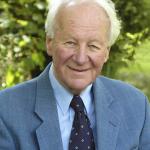MacArthur’s argument against the gift of healing seen in his book Strange Fire is an interesting one to me. He seems to distinguish between the idea that God can and still does heal today in response to our prayers, and the concept of the gift of healing. (See James 5:14-15).
He does this in several ways. Firstly, he believes that the “Gift” of healing was given exclusively to accredit the Apostles, something which as I said in a previous post, I just don’t see as the case allowing for the lists of gifts in 1 Corinthians and elsewhere which are clearly intended for the whole Church.
Also, if a healing does take place today, who does he think has done it? If it is the actions of the Holy Spirit, why would we not call it a gift of the Spirit?
But MacArthur also seems to believe that the new testament gift of healing was even more dramatic:
No New Testament miracle was ever attempted that was not ultimately a complete success. Some might counter by pointing to the disciples’ inability to cast out a demon in Matthew 17:20, or the Lord’s decision to heal a blind man in two stages in Mark 8:22–26.
But those exceptions only prove the rule—since in both cases full healing was ultimately accomplished. In the case of the dis- ciples, it is significant to note that the failure was caused by a lack of faith on their part (not on the part of the sick child). If modern healers want to find a parallel with that incident, they would have to recognize it is their own lack of faith that is the problem.
In the case of the blind man, Jesus healed him in two stages to make a spiritual point—accentuating the spiritual shortsightedness of the disciples (cf. Mark 8:21). Ultimately, the Lord fully restored the man’s sight. Thus in every instance, both in the Gospels and in Acts, Christ and the apostles had a success rate of 100 percent.
(Strange Fire, page 188)
Again, as I explained yesterday, the fact that there are greater versions of this gift seen in the Bible does not negate that it is quite appropriate to call a modern healing, a gift of healing, in my view. It is hard to see what else to call it! A lesser form of the same thing can still be the same thing as the greater form. If God is still in the business of performing miracles of healing, even if they are not as dramatic, why shouldn’t he also be giving less dramatic forms of the other gifts?
But, it is very wrong to think that in the NT every Apostle was always able to perfrom miracles of healing at will. If so, then nobody would ever have died, and presumably some of the Apostles themselves would still be alive today! You simply do not die of old age. Everybody who dies, does so because of some sickness. Are we to assume that the miracle-working Apostles never prayed for the healing of someone who wasn’t then healed? Or are we to assume that they were just too heartless to pray for anyone they somehow knew wouldn’t recover?
Actually there is a clear biblical precedent that in my view demonstrates this is totally wrong, and incidentally puts pay to any foolish notion that Christians today can claim total freedom from all sickness. We see here in Phillippians that Paul is clear that his friend might have died, but God raised him up. There is no sense here that death was not possible, and it appears that Paul had genuine concern that his friend may not have been healed in response to his prayers:
I have thought it necessary to send to you Epaphroditus my brother and fellow worker and fellow soldier, and your messenger and minister to my need, for he has been longing for you all and has been distressed because you heard that he was ill. Indeed he was ill, near to death. But God had mercy on him, and not only on him but on me also, lest I should have sorrow upon sorrow. I am the more eager to send him, therefore, that you may rejoice at seeing him again, and that I may be less anxious.So receive him in the Lord with all joy, and honor such men, for he nearly died for the work of Christ, risking his life to complete what was lacking in your service to me. (Philippians 2:25-30, ESV)
Miracles of healing were never automatic. We can never presume on God to perform them, and it seems that the Apostles even understood that. Their most dramatic healings came in response to a specific prompting from the Lord that was accompanied by an outpouring of power to pray for the sick.
I really do believe that God can heal today. I don’t naively believe every story of healing, however. And I also recognise that there is no such thing as a faith healer who is 130 years old or more! We live, as did the Apostles, in a fallen world where the power of sickness has not yet been vanquished. Ultimately the Christian’s healing will be given to him when he meets Jesus. But I believe that from time to time the powers of the age to come burst through into the present world. All these gifts are just a small deposit guaranteeing the vast inheritance that is to come (see Ephesians 1). That they are small deposits should not in my view devalue them. For the one who has given us this taste of what is coming is faithful and just and will complete the work he has strarted in us!
More posts on healing:
- Faith, miracles and healing
- John Piper on healing
- PIPER FRIDAY – A Charismatic Mandate
- Is it now illegal to write “God can heal today?”

















